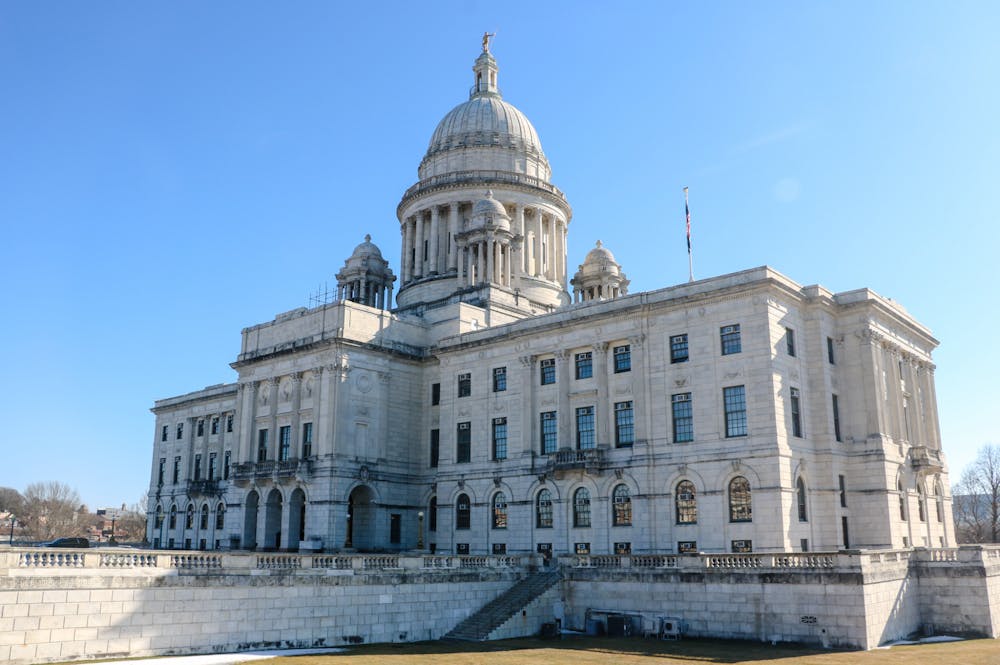On Feb. 2, the Climate Literacy Act was introduced in the Rhode Island House of Representatives. Bill H7275 proposes that K-12 students receive education on climate change "and understand key environmental, climate and sustainability principles," according to the text of the legislation. The bill calls for these principles to be “integrated into all … science, civics and social studies courses” in the state by August 2023.
The bill was held for further study on Feb. 16. The Climate Literacy Act was also introduced in the R.I. Senate and awaits a hearing today.
According to Representative Terri Cortvriend, a Democrat who sponsored the legislation, the bill’s progress within the Assembly is normal. "Bills almost never get voted on right at that moment. They get held for further study," she said. Cortvriend, who had attempted to pass the bill during last year’s legislative session, said she is confident about achieving success this time. "I would say that the hearing this year was more favorable," she added.
Timothy Herbert, professor of Earth, Environmental and Planetary Sciences, said that climate education "should be very complementary." He said that since science requires many different skills — from mathematics to English — the teaching of climate change has the potential to be a part of the entire curriculum.
"It is one big way of looking at the world," Herbert said.
Cortvriend warned against viewing climate change as a topic that should be taught only in science classes. "We should do more. It touches more than just science," she said.
The intention of the bill, according to Cortvriend, is to create a baseline of knowledge around the topic. "I want to make sure (all) our Rhode Island students graduate with the same facts," she said. The proposed legislation, if passed, would incorporate input from environmental experts to create teaching materials and "embed them in the curriculum," she added.
Herbert also addressed how the measure might help bring climate change awareness into urban communities. He said educating children and teenagers on climate change would mean inspiring small changes at the local level that could produce big impacts. By "bringing the environment … home to the neighborhood, to the family and to issues that have to do with equity," the younger generation will become attuned to all the ways climate impacts communities, he said.
For Thomas DiPaola, executive director of the Rhode Island School Superintendents Association, discussing climate change is crucial. Speaking about going on walks on the beach with his four-year-old granddaughter, DiPaola said, “believe me, I want that to be around for her grandkids."
But critics have expressed concern about the practicality of the proposed legislation given the larger reality of education in Rhode Island.
Herbert described a challenging reality in Providence’s educational system which may limit the feasibility of the bill. "I think a challenge that we certainly have in Providence is that … it has been hard to really give enough attention to science literacy in general," he said.
DiPaola said he is concerned that this legislation represents a "one off," or stand-alone curriculum requirements that "almost never give a thought to other commitments." While he believes the bill has merit, he said it is necessary to look at the bigger picture to better integrate climate literacy into the state’s current educational context, he said.
"Who is going to pay for it, where is the time going to come from, where are the people going to come from and how does this fit into the bigger puzzle that (is) our schools?" he added.
Helaine Hager, president of the Rhode Island Science Teachers Association, echoed many of DiPaola's concerns. She said the proposed legislation lacks concrete answers on how to practically provide climate change literacy. "It is interesting that they are proposing legislation, but then what do you do with it?" she said.
Hager worries that the topic of climate change will only be addressed on a superficial level in classrooms. “I would like someone to have a clear idea of exactly what the ask is when you say, ‘teach climate change,’ ” she said. “It is such a complex problem with complex origins and complex solutions that incorporating it on a superficial level within courses is what I find to be a problem.”
Hager also stressed the importance of integrating climate change lessons into the broader curriculum. She highlighted the fact that updates to graduation requirements in the state are currently being considered by the Rhode Island Department of Education and proposed the addition of a climate change requirement. "If it is not a graduation requirement and someone proposes it as a rule of law, what happens to it?" Hager said.
DiPaola said RISSA's message is one of collaboration. "We are very interested in this” bill, he said. “Give us a chance to work with you and see if we can overcome some of the obstacles.”

Julia Vaz was the managing editor of newsroom and vice president on The Herald's 134th Editorial Board. Previously, she covered environment and crime & justice as a Metro editor. A concentrator in political science and modern culture and media, she loves watching Twilight (as a comedy) and casually dropping the fact she is from Brazil.





